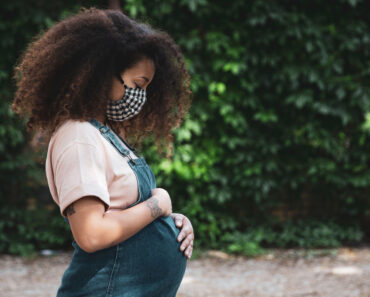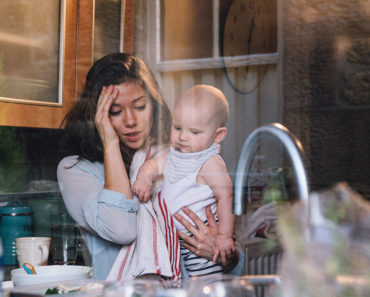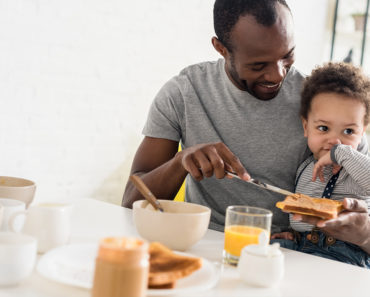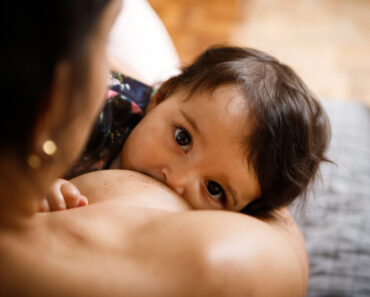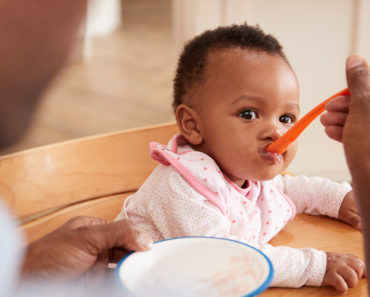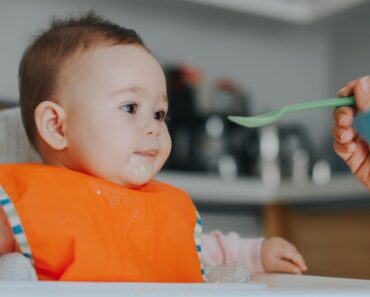I have been able to laugh and see the funny side of things. Please score “zero” for As much as I always could; “one” for Not quite as much now, “two” for Definitely not so much now, or “three” for Not at all.
Sitting in the naturopath’s office, tears streaming down my face as I rocked my six-week-old in her car seat beside me, I struggled to process this question and the ones that followed. They seemed endless and the nuance between scoring myself two or three was irrelevant. I was miserable.
This was one of my first encounters with the Edinburgh Perinatal/Postnatal Depression Scale (EPDS), developed in 1987 by Scottish health professionals, to identify women who may have postpartum depression.
The CDC estimates that one in eight women experience postpartum depression and on a 2018 Statistics Canada survey almost a quarter of women who had recently given birth reported feelings consistent with either postpartum depression or an anxiety disorder. Over the next 10 months, I would take the EPDS at least five more times, on an impromptu basis at baby check-ups or it would turn up as a pop-quiz at doctor’s visit for something unrelated. Each time, I scored high—reassuring in some ways, because it fed my perfectionist ideals—but still, I didn’t believe I was depressed.
The test painted an image of a sad, powerless, woman crying in her room. That wasn’t me. I was a busy mom, taking care of two kids under 3. The last year had been a challenge—we were living in a new city, had moved into a new house at 36 weeks pregnant, the birth of my sweet baby girl had been swift, if not a little traumatic. And my pregnancy had been preceded by a mix of failed IVF and miscarriages. It didn’t seem extraordinary that I was not at my best.
I believed that if things in my life could just go well, I would be happy. My husband, the public health nurse, the naturopath and my family doctor all suggested different avenues of support: Exercise, walks with friends, group therapy, vitamin supplements, and antidepressants. Each of these was met with a blend of ego, mistrust, and what I mistook for resilience.
I turned my nose up at group therapy because I was unconvinced that I had anything in common with the other women, who surely acted more “depressed” than I did. After all, I wasn’t sad, I was angry, something I blamed in part on the “fail by numbers” EPDS approach to postpartum attention I received after the birth of my daughter. The postpartum care I’d had in France with my son two years earlier had included regular baseline blood work, ongoing check-ups, and mandated pelvic floor and abdominal rehabilitation. Placing emphasis on the mother as an individual made me feel entirely supported, physically and mentally. This time around, it seemed my well-being was only a consideration when I broke down in public.
My family doctor suggested antidepressants but I held a particular aversion toward them. As a young adult I’d been diagnosed with General Anxiety Disorder and had tried medication, but it made me numb. I loved feeling my feelings—my highs were very high, and the lows were just part of the package.
The way I saw it, antidepressants were useful, but they weren’t for me. I was convinced that the key to solving this feeling was to do more and do it better, so I decided to busy my way out of my feelings, while simultaneously analyzing every decision. I launched into decorating our new home, reorganizing the playroom, and cooking complex meals. I took the children out for more activities; the endless baby laundry was always done, folded and put away; I challenged myself to take both children for coffee – which was a horrible idea because it just added to my stress in an uncontrolled environment. My two-year-old making soup with his drink and muffin would bring a smile to my face today but back then it was more than I could handle. Sometimes I would meet my self-imposed challenge successfully, and I would feel great about my “accomplishment”. But more often I was stressed, overwhelmed, and felt under-appreciated. Regardless, I never enjoyed what I was doing. Box ticking was my only driver. Connecting with my partner was a non-starter, my mood swings and undertakings of “productivity” left him treating me with kid gloves. Even my toddler rejected offers to go throw rocks in the water—his favourite activity.
As I scrutinized my every move, I entertained the most outlandish visuals in my mind. Some of them centered around the baby: I was terrified her two-year old brother would fatally step on her head or that she could mysteriously fly out of my arms at any moment. Mostly though, it was about my failings as a mom, partner, and decidedly unworthy human. I lived entirely in the dark depths of my psyche, questioning, analyzing, criticizing, despairing. My indecision over the most trivial of questions was paralyzing. Buying basic household items took forever: “Are grey sheets ok?” Light or dark grey?” “Do we even need new sheets??!” When I was with my kids I would be watching myself be with them, dissecting my behaviour, my words, my tone: Was I fun? Was I calm enough, loving enough? Was I doing it right? I was so exhausted and so involved in the minutiae that I couldn’t see the bigger picture. At one point I yielded to the naturopath I had been seeing who gave me a bottle of St. John’s Wort tincture, which I dutifully stored in my cupboard and pretended to take. In hindsight, this may have been the first glimmer of me accepting my reality.
Denial, however, continued till the end of the year. I stopped calling friends because I had nothing positive to say. Once my toddler was at daycare, I would stay in my bedroom with my daughter, breastfeeding while watching endless Netflix. If she napped, I’d stay in my room. I was short with most people who crossed my path. My daughter was my dutiful sidekick and she seemed to be the only one to accept me in my misery, cooing next to me, blissfully unaware of my emptiness.
I continued to say no to group therapy, one-on-one therapy, and was vehemently opposed to antidepressants. I doubled down on my ability to get out of this “phase” myself.
On January 2, 2020, 10 months after my daughter was born, it all came to a head. My husband had been under the weather since New Year’s Eve. Two days into the new year, he woke up even more exhausted and sick. He could barely walk, dress himself or hold our baby girl due to muscle weakness. After 36 hours of worsening symptoms, he went to the hospital. I was overwhelmed running a myriad of worst-case scenarios in my mind. I could no longer hold up the façade that I could do it alone. This new, very real situation had a way of revealing the truth: I needed help. After months of anxiety, anger, desperation, and busy-ness, I found myself crying, huddled over my phone in the corner of the playroom, begging the public health nurse to let me join group therapy—immediately. I answered the questions on the EPDS for the final time, scored off the charts, and accepted an appointment with my family doctor the next day.
My husband slowly on the mend, I slinked into the doctor’s office ready, feeling defeated and small. The doctor told me that I had no say in the matter—no control at all. No amount of hard work could fix this. She explained that this went beyond hormones—that the postpartum brain is physically altered by pregnancy and that the hippocampus—the seat of learning and memory—loses plasticity and doesn’t fire in the same way. The amygdala, my emotional centre, was likely underactive.
The antidepressants would support me as my brain healed. “Would you continue to run on a broken leg, expecting it to heal itself?” she asked. My armour long gone, I conceded that my way wasn’t working. What she had on offer sounded much easier and ease was what I desired most. I felt like I was hearing about antidepressants for the first time.
It takes about two years for the brain to repair itself from pregnancy. In that time, thanks to medication, I have developed deeper bonds with my kids, my partner and, most importantly, myself. I stopped watching myself and I stopped analyzing. The intrusive thoughts of awful things happening to my daughter ceased. I gained confidence. I slowed down and just was. I wasn’t angry anymore. Things felt good. I was able to see that it wasn’t the things around me that needed fixing; it was the way I saw them from the inside that needed shifting.
I did get into group therapy right before COVID-19 was declared a pandemic. By that time my medication had started working. I saw myself in the women sitting around the circle, resisting, pushing, exhausted by wanting to do it all. Mothering is hard enough; we don’t need to do it all by ourselves. There is help—and it takes all forms. Accepting it was one of the greatest gifts I’ve given myself.
